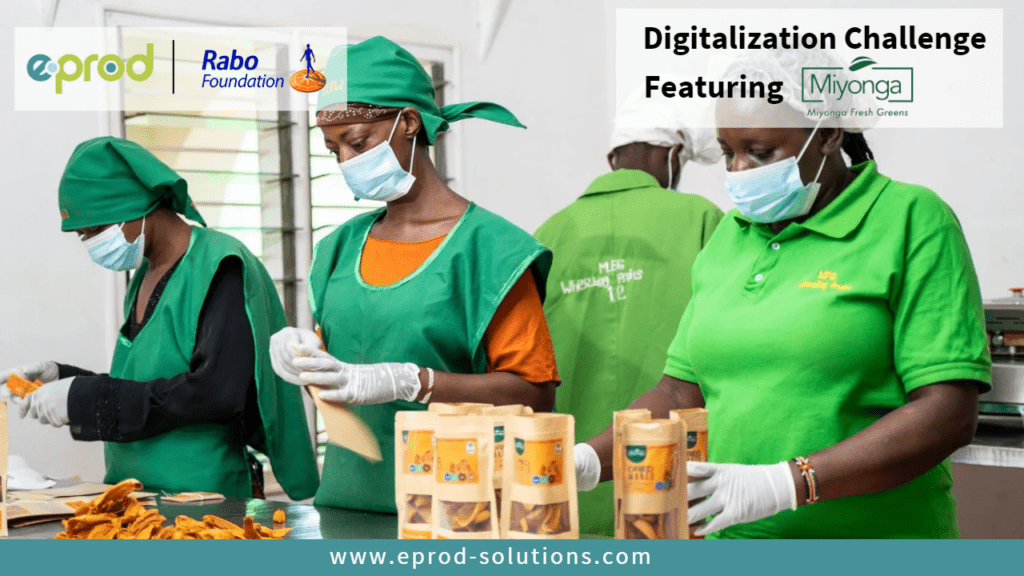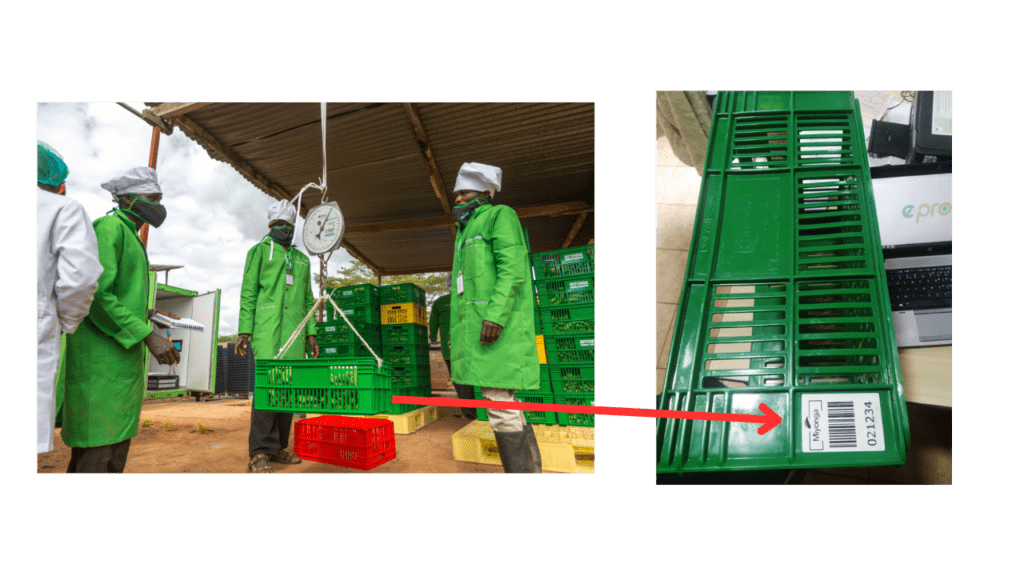
Kenyan farmers are increasingly gaining access to global markets through various initiatives. However, they often face significant barriers, such as meeting the quality and safety standards required for export. While there is strong international demand for Kenyan agricultural products like fruits, vegetables, and coffee, many farmers struggle due to limited knowledge of these standards and a lack of resources and support, making it challenging for exporters to compete on the global stage.
Miyonga Fresh Greens is a Kenyan women-owned food processing company that started in 2015. The company produces high-quality dried fruit products using mobile processing units at the farm level. These products, which include fresh, dried, and powdered fruits like mangoes, bananas, and pineapples, are in high demand globally. Miyonga works with 3,600 smallholder farmers in rural Kenya, specifically in Malindi, Taveta, Tana River, and Makueni, helping them connect to large European markets.
To further enhance their operations, Miyonga partnered with eProd through the Digitalization Challenge managed by eProd with co-funding from Rabo Foundation. This collaboration has optimized their supply chain management processes, ensuring transparency, accountability, and traceability from farm to market.
Before using eProd, Miyonga’s farmer data was collected manually on paper, which led to many errors and inefficiencies. With eProd, the company has cleaned up its farmer database, allowing them to verify and ensure that the data they have is accurate. This is particularly important for tracking the number of farmers trained in Good Agricultural Practices (GAP).
Using eProd has made it easier for Miyonga to manage its relationships with farmers. The software enables the company to keep detailed records of which farmers have been trained and what they’ve been trained on. This not only helps in managing the farmers better but also in reporting accurate information to stakeholders, such as their donor funded organizations they work with. Investors are particularly interested in this, as they can clearly see the positive environmental, social and governance, or ESG information to monitor the impact Miyonga’s work has on the farmers’ livelihoods.
One example of this impact is how eProd has improved the company’s credibility with investors by providing clear data on the benefits for farmers.
Today’s consumers want to know where their products come from and that they are ethically sourced. eProd helps Miyonga meet these demands by offering a digital system that tracks the entire supply chain—from the farm to processing, packaging, and finally, to the customer.
“The digital traceability system integrated into the software allows us to meticulously track our farmers and monitor the impact of our practices. This capability is invaluable not only for ensuring compliance with strict export market standards and quality requirements but also for providing our customers and donors with concrete evidence of our social and economic impact. By demonstrating our commitment to ethically sourced products and transparent operations, we can effectively meet consumer demands and reinforce our credibility in the market”, states Grace Njoroge, Chief Operating Officer of Miyonga. This level of detail not only helps them to meet strict export standards but also builds trust with customers by showing them exactly how their food is produced.

Looking to the Future
Miyonga sees room for additional use of eProd. One idea is to add a feature where farmer stories can be linked to their profiles. These stories could be shared with customers when they purchase a product, creating a stronger connection between the consumer and the farmer. These are welcome suggestions, and the functionality is already available in eProd and was developed to support the saffron sector in Afghanistan to help them brand the product from their country, see link. (https://www.eprod-solutions.com/product-branding-through-traceability-the-case-of-saffron-in-afghanistan/)
Miyonga’s use of eProd shows how technology can make a real difference in the agricultural industry, helping companies manage their operations better and meet the growing demand for transparency and ethical practices.
